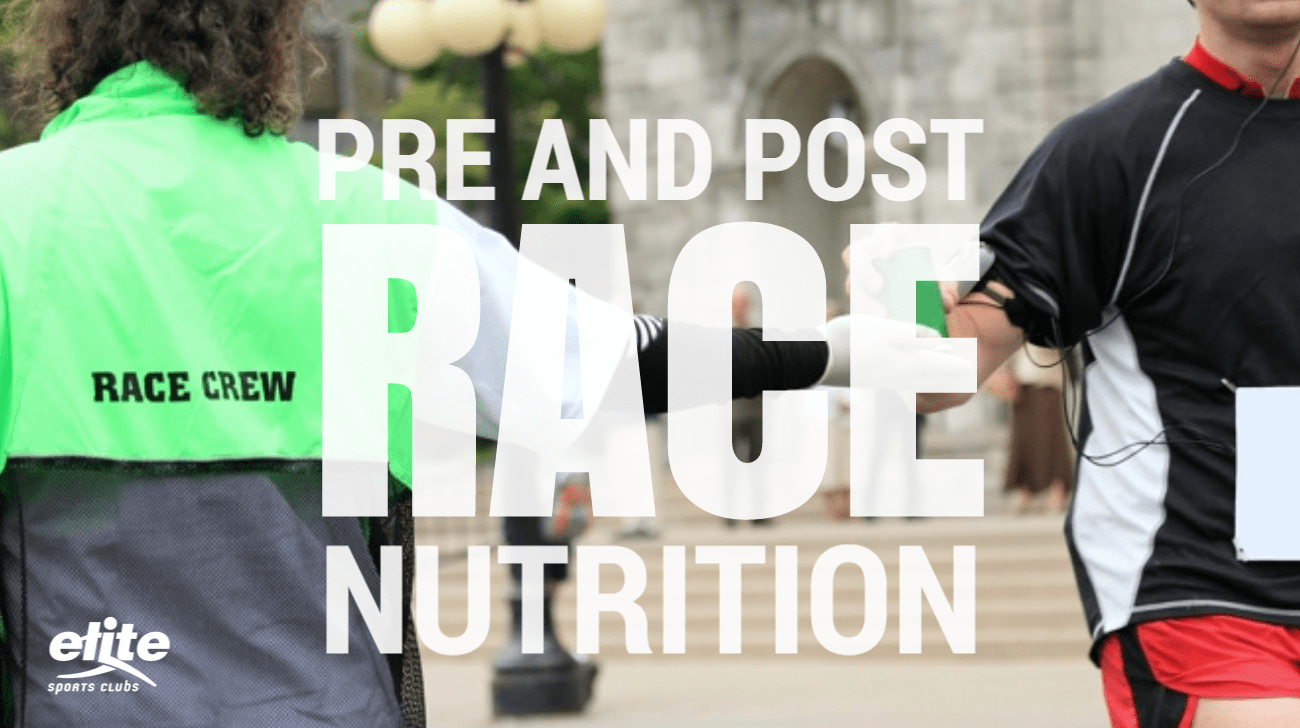
Without a doubt, what you eat and when you eat affects your athletic and race performance. A wisely selected sports diet can help you be stronger, train harder, and compete better. Use the following sports nutrition tips to help optimize your performance.
The best foods for your muscles are carbohydrates, either simple sugars, as in fruit and fruit juice, or complex carbohydrates, such as, breads, pastas, and rice. These carbohydrates provide needed nutrients at the time you are competing, as well as the active energy source at exactly the right time. Soft drinks, candy, and sports drinks, may provide a quick energy source, but do not contain any useful nutrients.
Your muscle stores only carbohydrates as glycogen and during hard exercise will use this for energy. If you are doing several days in a row of hard training, you may begin to feel overwhelmingly exhausted. Eating high carbohydrate foods, such as pancakes, bread, fruit, vegetables, pasta, and potatoes on a consistent daily basis can help you realize a real sustained energy source.
Experts today do not recommend the conventional carbohydrate loading meal, as once suggested, as it will now be considered too much carbohydrate at one time, and further create a depleted “feeling” during your event. The word for the day is to be consistent throughout your training, using basic forms of carbohydrate for your pre-race meals, but not the overeating of as much as possible as once prescribed.
If you are looking for a pre-race source of quick energy try these foods:
- Breakfast: cereal or bagel, oatmeal
- Snacks: crackers, fruit, or granola bar
- Lunch: soup and/or sandwich
- Post-event: granola bar, fruit, yogurt, chocolate milk
Following an event, you should eat or drink carbohydrates as soon as tolerated, which is within two hours after hard exercise to replace depleted glycogen stores. Muscle is most receptive to refueling at this time. A good example is fruit juice and plenty of water. For athletes who do far more exercise with their events, consuming a little protein along with the carbohydrate source—such as yogurt and chocolate milk—may enhance the speed of recovery and reduce soreness. For a full meal hours after an event, choose lower fat meals instead of hamburgers and fries, such as pizza with simple toppings, pasta with meatballs, grilled chicken dinner, and emphasize potato, pasta, breads, vegetables, juices, and other simple carbohydrates.
And for your best performance, concentrate as well on the fluids you drink, before during and after an event. So, what is best to drink prior to your race? Water is good for an event lasting an hour or less. For an event lasting longer than an hour, and are low on energy, a sports drink during exercise offers energizing carbohydrates and can enhance your stamina and endurance. After exercise, water, juices, or sports drinks all provide what you need, that is, a combination of water and carbohydrates.
Sports drinks should be approximately 80 calories per 8-ounces plus a little sodium. Experts will recommend that all beverages and foods that you will want during and after a race, should be tried out beforehand to see which drinks, and even flavors, are best for suited to your tastes and that your stomach can handle them as well. The sodium replacement is equal to ¼ tsp of salt; but can also be replaced easily by the suggested foods mentioned above.
The best thing to remember the day before a race is to drink plenty of fluids to make sure your body is well hydrated. Coffee is not recommended during this time as that it can act to deplete body fluids and never provide any real hydration.
On the morning of an event, drink extra water, juice, and other fluids. You will need at least 16-ounces of fluids up to two hours prior to the start. The kidneys require 45 to 90 minutes to process liquids, two hours allows for adequate time for you to empty your bladder before the start of the event. Then, 5-10 minutes before the start of a race, drink another 8-16 ounces of water or sports drink. And, you are off!
Depending on the temperature that day (above 80 degrees), the length of your event, and the pace of the event you are expecting, all of these factors will affect the food choices you make. It may be best for you to carry with you all of the supplies you will need, just in case you are caught short for food and water. Of the items that are provided by a race committee, you can count on cookies, bagels, bananas, Gatorade, energy gels, and the newest favorite on the scene, chocolate milk. I would suggest also taking your favorite fruits, cereal bars, cheese sticks, saltines, and even cut-up vegetables.
Members that I work with will always receive a calculation of the fluids that they need on a normal daily basis. To do your own, take your current weight and divide by 2.2 for kilograms. Then, take the kilogram weight multiplied by 30, and divide by 25. This will be the number of ounces of water you need per day; 20% of which will come from food, but the rest you need to drink! Note: 8-ounces per 1-cup.
Written by Rita Larsen, RDN, CD; Nutrition Educator & Diet Counselor
Rita is certified in Positive Psychology, University of Penn; has a BS in Dietetics from Kansas State University; and an Internship and Masters at the Indiana University Medical Center.